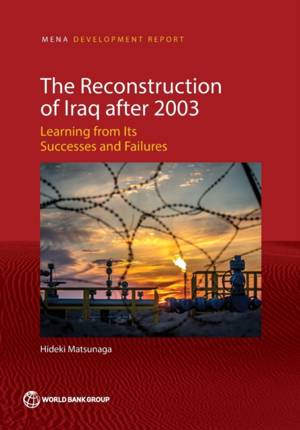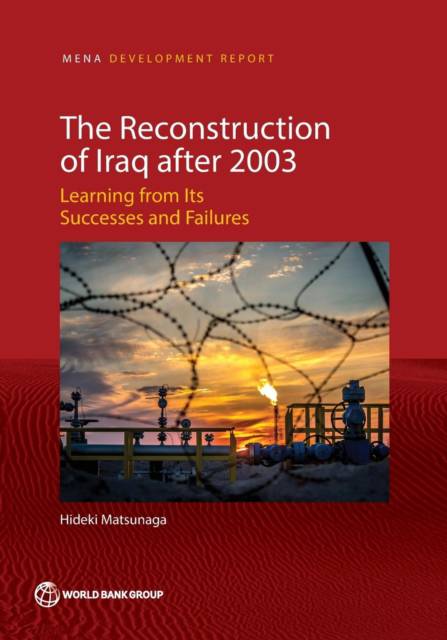
- Retrait gratuit dans votre magasin Club
- 7.000.000 titres dans notre catalogue
- Payer en toute sécurité
- Toujours un magasin près de chez vous
- Retrait gratuit dans votre magasin Club
- 7.000.0000 titres dans notre catalogue
- Payer en toute sécurité
- Toujours un magasin près de chez vous
64,45 €
+ 128 points
Description
Beginning in 2003, diverse and significant actors, both domestic and international, engaged in reconstruction activities in Iraq. The total budget committed to Iraq's reconstruction was unprecedented among postconflict operations mobilized by the international community. Despite the vast sums of money spent, and the implementation of its many projects and programs, the donors and the Iraqi people view the reconstruction efforts in Iraq in a negative light. The Reconstruction of Iraq after 2003: Learning from Its Successes and Failures focuses on the period between 2003 and 2014--that is, after the United States-led invasion and overthrow of the Saddam Hussein regime, and before the sudden rise of the Islamic State of Iraq and the Levant (ISIL), also known as Daesh. This book assesses several dimensions of Iraq's reconstruction. First, it considers the response of key international actors, such as the United Nations, the World Bank, the United States, and other bilateral donors--specifically, the European Union, Japan, and the United Kingdom--as well as nongovernmental organizations. Second, it analyzes the process and results of the reconstruction of key sectors (electricity, oil, education, and health), and the interventions geared to institution building and governance reform. Pursuing effective reconstruction within the context of conflict and fragility is a formidable challenge because of the uncertain, fluid, and complex environment. Based on the experience in Iraq, how can the international community support the effectiveness and durability of reconstruction? This book identifies lessons in seven areas and offers four recommendations for international and domestic actors and citizens engaged in reconstruction activities. The Reconstruction of Iraq after 2003 is important reading for development practitioners and policy makers who are or will be engaged in reconstruction efforts in fragile and conflict-affected environments.
Spécifications
Parties prenantes
- Auteur(s) :
- Editeur:
Contenu
- Nombre de pages :
- 134
- Langue:
- Anglais
- Collection :
Caractéristiques
- EAN:
- 9781464813900
- Date de parution :
- 20-05-19
- Format:
- Livre broché
- Format numérique:
- Trade paperback (VS)
- Dimensions :
- 178 mm x 254 mm
- Poids :
- 244 g

Les avis
Nous publions uniquement les avis qui respectent les conditions requises. Consultez nos conditions pour les avis.






